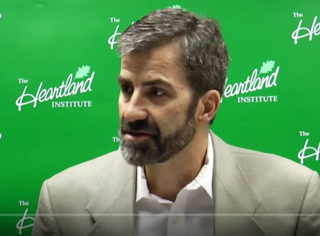A Quote by James B. Stewart
Various justifications for lower capital-gains rates have been proffered over the years, none of them self-evident. But even conceding the wisdom of lower capital-gains rates, why should they never be taxed at all, even as they are passed from generation to generation?
Related Quotes
Well, certainly the Democrats have been arguing to raise the capital gains tax on all Americans. Obama says he wants to do that. That would slow down economic growth. It's not necessarily helpful to the economy. Every time we've cut the capital gains tax, the economy has grown. Whenever we raise the capital gains tax, it's been damaged.
Index funds are... tax friendly, allowing investors to defer the realization of capital gains or avoid them completely if the shares are later bequeathed. To the extent that the long-run uptrend in stock prices continues, switching from security to security involves realizing capital gains that are subject to tax. Taxes are a crucially important financial consideration because the earlier realization of capital gains will substantially reduce net returns.
I think everybody in this generation, and I'm the leading edge of the baby boom - I was born in 1946 - has benefitted from a 30-year explosion of debt, which created temporary but unsustainable economic prosperity and a financialization of the system through lower, and lower, and lower interest rates that has created massive rewards to speculation but not real investments so I benefitted from it. Almost everyone who has been in the market has benefitted but they didn't earn it.
Since 2008 you've had the largest bond market rally in history, as the Federal Reserve flooded the economy with quantitative easing to drive down interest rates. Driving down the interest rates creates a boom in the stock market, and also the real estate market. The resulting capital gains not treated as income.
The benefits of a modest warming would outweigh the costs - by $8.4 billion a year in 1990 dollars by the year 2060, according to Robert Mendelsohn at Yale University - thanks to longer growing seasons, more wood fiber production, lower construction costs, lower mortality rates, and lower rates of morbidity (illness).






























